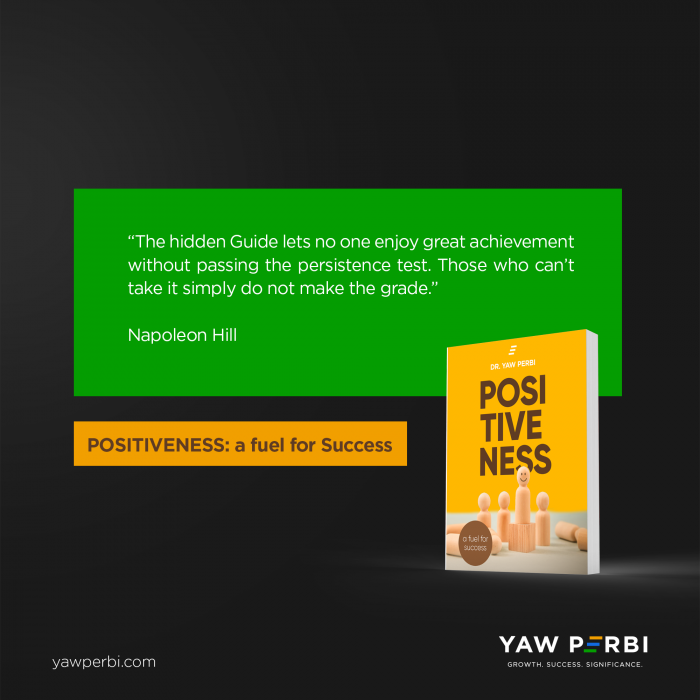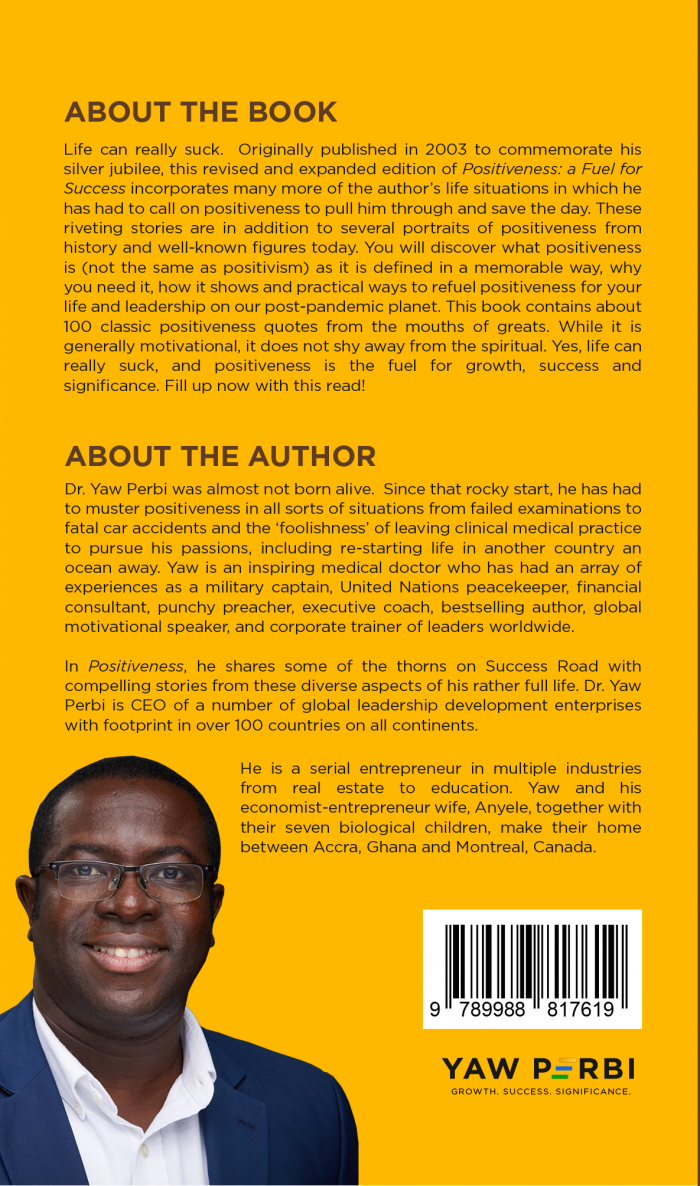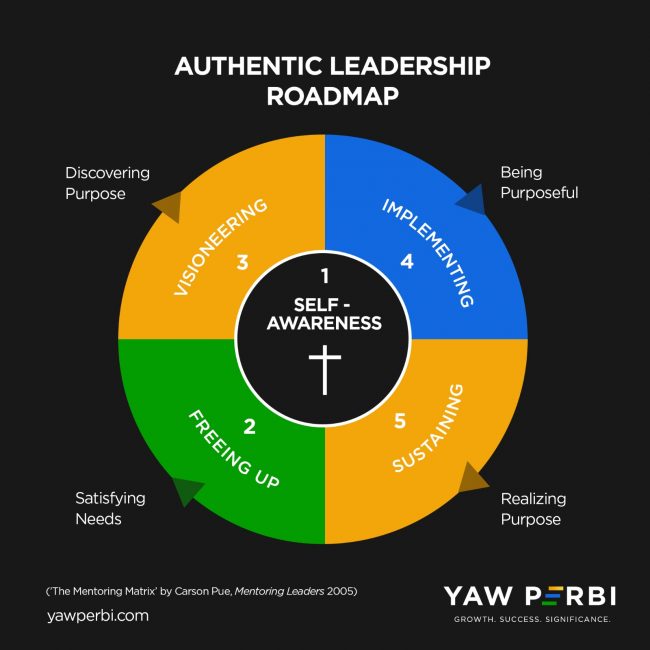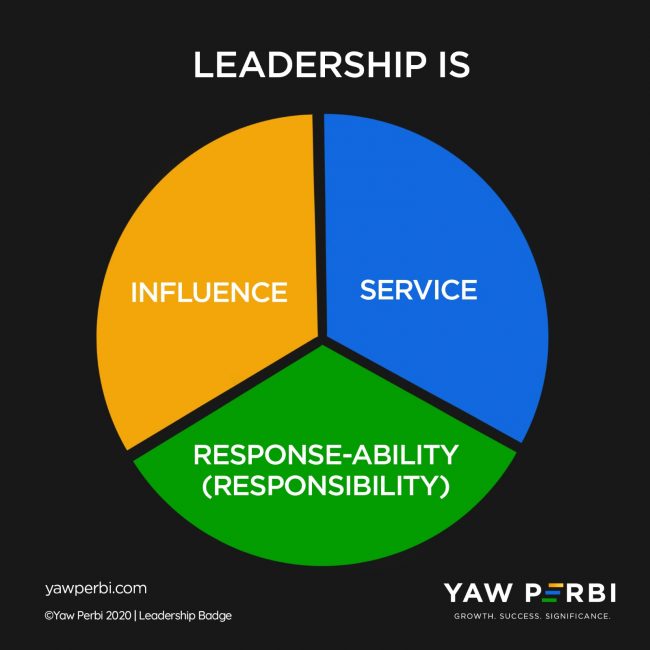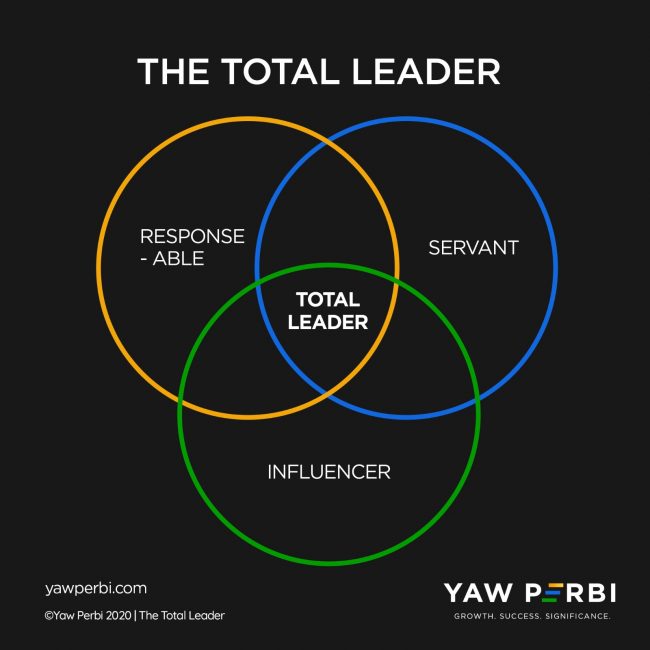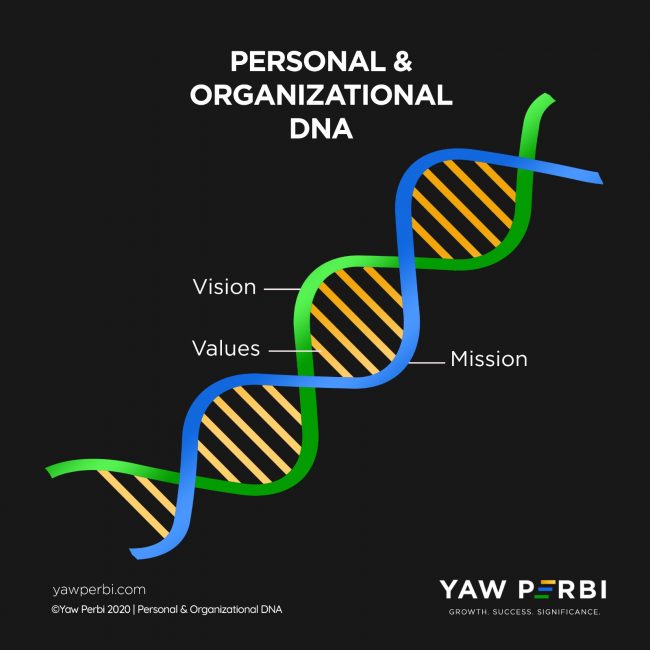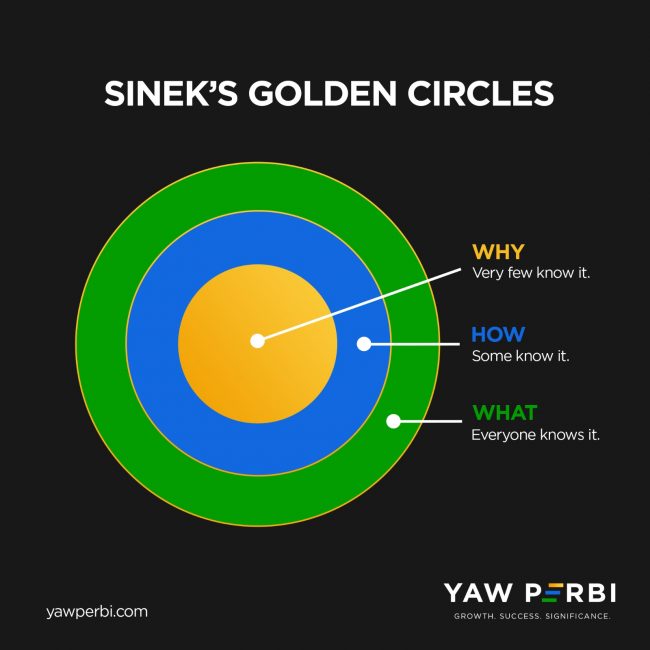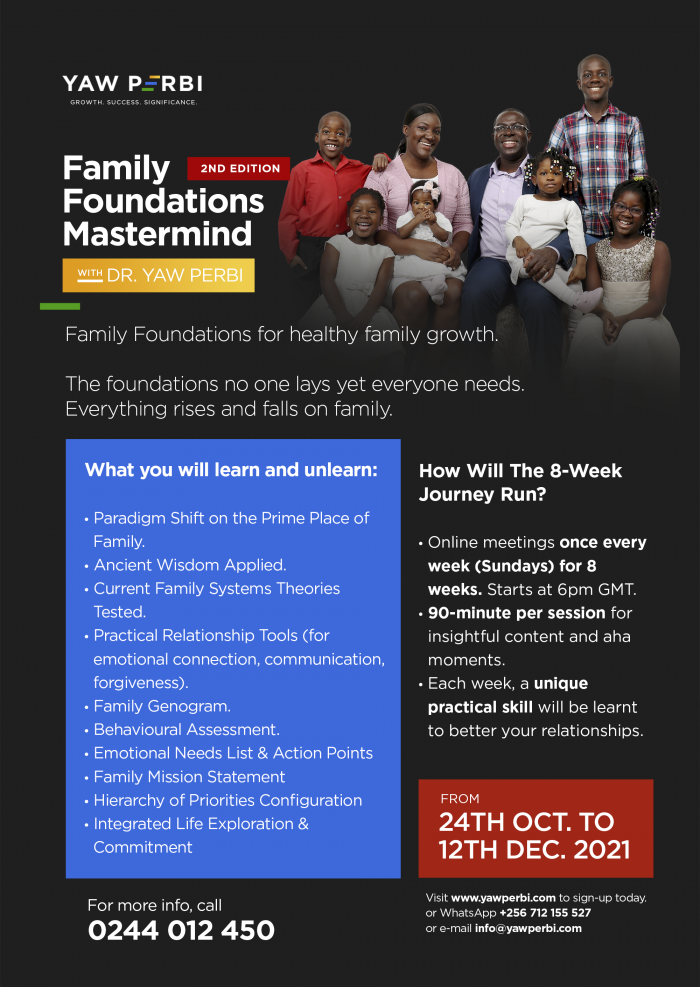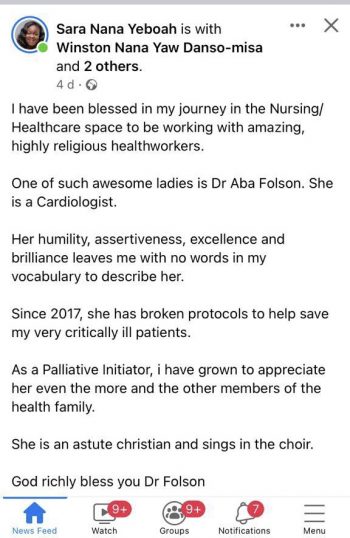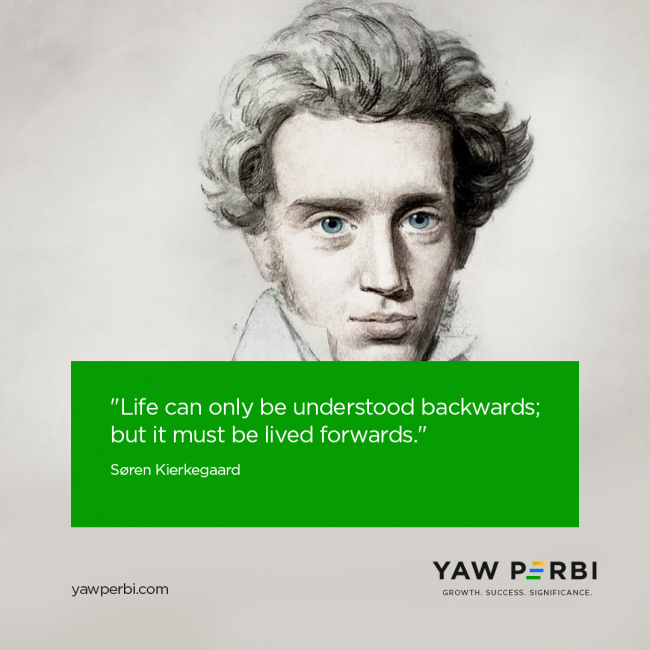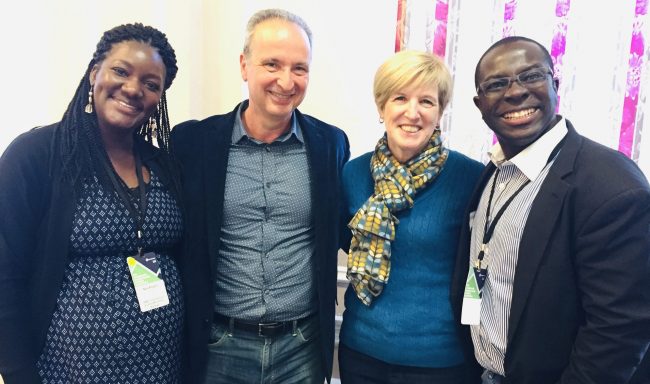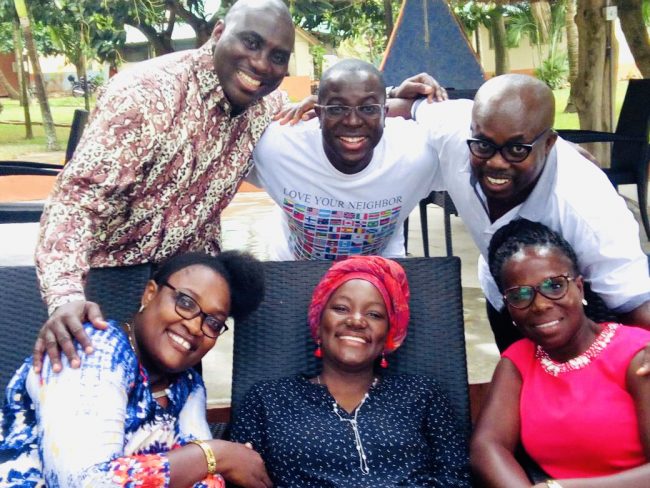
5 Signs You Need A Life coach ASAP| 5 Benefits of Getting a Coach
High achievers appreciate the role of a coach for high performance in their personal and professional journey. In a highly competitive environment that puts a high demand on your time, you need someone who can bring the best out of you. In fact, with the right coach, you can accomplish in one year what you have struggled to achieve in the last 10 years.
Coaching is a process of moving someone from where they are to where they want to be, through encouragement, guidance and honest feedback. The coach uses guiding questions to help the coachee set goals and take the necessary steps to achieve them.
Tom Landry, a football coach, once said, “A coach is someone who tells you what you don’t want to hear, who has you see what you don’t want to see, so you can be who you have always known you could be.”
Let’s use the Word COACH as an Acronym for the benefits of coaching: Clarity, Outcome, Accountability, Challenge and Habits
Here are the 5 signs you need a coach and the 5 benefits of coaching.
Sign #1: You Lack Clarity about Your Identity, Purpose, Priorities, Values, Talents, Gifts and Personality Style
CLARITY
A coach uses different tools to help you gain clarity about who you are, why you are here on earth, your life priorities and what you stand for. They introduce you to assessments like the DISC to help you understand and apply your personality type. Through coaching, you become more self-aware.
Sign #2: You Rarely Set SMARTER Goals to achieve Your Desired Outcome
OUTCOME
A coach helps you to set SMARTER (Specific, Measurable, Achievable, Relevant, Time-bound, Evaluated and Rewarded) goals and provides tips and tools to achieve them. He or she helps you write a vision statement in the aspects you desire to see a specific outcome.
Sign #3: You’re Answerable To No One For Achieving Your Goals
ACCOUNTABILITY
A coach helps you stick to your commitments, follows you up on your goals and gives honest feedback on your progress.
For instance, if your goal is to jog three times a week for 30 minutes each time for physical fitness, there may be times when you fall behind on this goal. A coach will hold you accountable and keep you focused on the benefits you’ll enjoy once the goal is achieved.
Sign #4: You Feel Bored, Stagnant and Underutilized
CHALLENGE
A coach challenges you to stretch and step out of your comfort zone, pursue your dreams and God’s will for your life. Because they believe in your potential to become better, they challenge you to grow past your limiting beliefs and fears.
Sign #5: You Struggle To Develop or Ditch Certain Habits
HABITS
A coach helps you cut off habits that waste your time and hinder your progress. He/She helps you create a new system of doing things and set proper boundaries that make you more productive.
I hope you now appreciate the fact that you can’t progress past a certain level of growth and success without the help of a caring and committed coach.
Check out the 5 Steps to choosing the right coach.
And if you’re eager to achieve your goals, consider getting a coach today. Contact us, the YAW PERBI Team, via info@yawperbi.com.
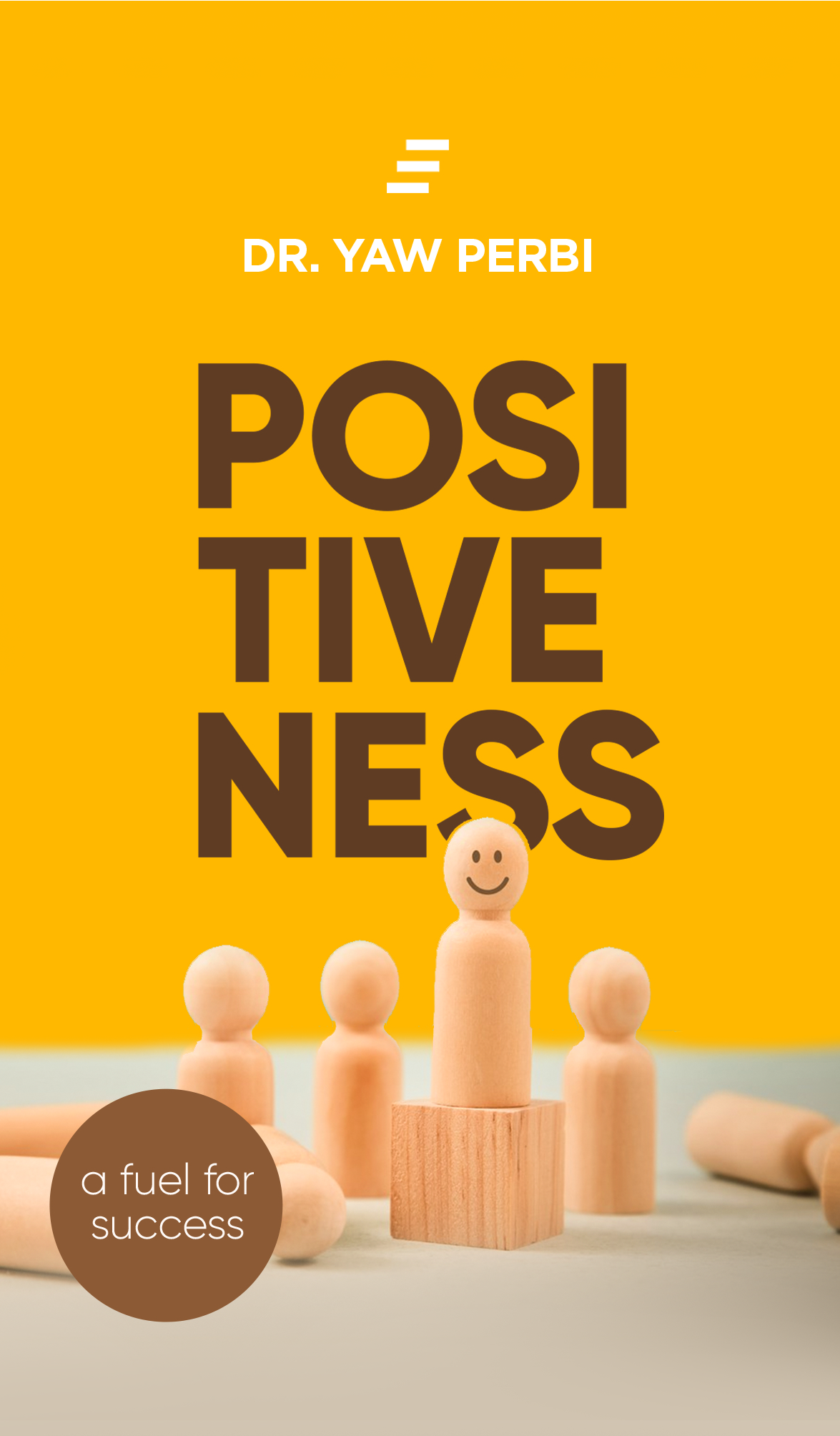
PANDEMIC OR NO PANDEMIC, POSITIVENESS IS STILL A FUEL FOR SUCCESS
The following is a snap peak of the preface to the third edition of Dr. Yaw Perbi’s third book, ‘Positiveness: a fuel for success’, first published in 2003 to commemorate his silver jubilee.
It took a global pandemic to make this third edition of Positiveness: A Fuel for Success, possible. I have been trying to republish this book for nearly a decade now. The revised manuscript was done in 2012, and I had nearly completed the back-and-forth with a publishing company. All was ready to go, or so I thought. Then life happened and I put this on the backburner. Until now. It took the lockdowns of the Coronavirus pandemic of 2020 to get this going again.
I have changed a lot since I turned 25 and first launched this book and so have many things too. We didn’t even have smartphones back then, and the internet was still a novelty. But some things have remained the same. After thousands of copies sold and many countries reached, “through all the changing scenes of life, in trouble and joy,” what hasn’t changed is the fact that positiveness is still fuel for success.
In the past two decades, I have lived and worked for a year or more in three countries on two continents. In doing so, I have needed a whole lot of positiveness, especially in those times when I was geographically separated from my family. I have formally had various occupations and preoccupations ranging from being a medical doctor in Ghana, a military captain with the United Nations in Cote d’Ivoire, a leadership consultant and speaker around the world, pastor of a Chinese congregation in the French city of Montreal, a financial security advisor and investment consultant, to being president of a couple of Canadian and global charities. Positiveness is still fuel for success no matter the field of endeavour.
You see, this book was only my third book and, back in 2003, I wrote and self-published it with a white cover and silver inscriptions to celebrate my twenty-fifth birthday (silver jubilee). At the time, I was a struggling medical student in Ghana attempting to do ‘what Napoleon couldn’t do’. I was trying to straddle the world of medicine and human development. In May 2003, together with a group of friends, while still in med school, I founded The HuD Group to inspire and empower young people to reach their full potential. Now I am a full-fledged medical doctor who has hung up his stethoscope— after four years of clinical practice—to focus on human development, especially holistic leadership development, because I sincerely believe, like my mentor John C. Maxwell, that “everything rises and falls on leadership.”
The HuD Group began in Ghana but, at the time of writing this, I am feverishly coordinating our global operations in two dozen countries on all continents of the world and currently domiciled in Montreal, Canada. If I thought I needed a daily prescription of positiveness back in 2003, then I might need a thrice daily prescription now. The two-year battle with the Canada Revenue Agency alone to get charitable status for The HuD Group warrants a book on its own. I’ll save that for another day, but it took positiveness to fuel my success.
When I was much younger and naïve, I dreamed of working with the United Nations. And unlike many for whom that is still a dream, I achieved it. I did that, for a year, in La Cote d’Ivoire. Even while already enjoying that success, I still needed positiveness as fuel when I got car-wrecked on July 21, 2008 and lost two of the military colleagues I was travelling with. It was positiveness that got me back on the road to recovery. My commanding officer, out of rare soldier-sympathy, wanted me to return home (to Accra, Ghana) and recuperate but cheers to positiveness, I was convinced to stay put and serve with grace. I prevailed. Positiveness prevailed.
So yes, life has changed—a whole lot— and so have I since 2003. Now married to my dear wife, Anyele, and a father to seven amazing children, I certainly have a broader and deeper perspective on life today. But if anything, these changes have only affirmed and confirmed the principles that were penned in this book nearly two decades ago. Positiveness is fuel for growth, success, and significance in any and every endeavour, and at whatever age and stage in life, that hasn’t changed.

THE PRESENCE ~ Part 3 (of 3)
Do you know the story about the wealthy arts collector and his son? Eventually when both died the man willed all of his wealth—unbeknownst to the other wealthy art connoisseurs and museums who were eyeing his stuff—to whoever bought the ‘unimpressive’ but deeply precious painting of his son. Usually, this story is told in an evangelistic sense for people to consider Jesus Christ as their Saviour and Lord—“whoever takes the Son, gets it all”—yet this is the same Son who said, “But very truly I tell you, it is for your good that I am going away. Unless I go away, the Advocate [THE PRESENCE] will not come to you; but if I go, I will send him to you” (John 16:7). Friend, whoever takes the Spirit, THE PRESENCE, into 2022, gets it all.
THE PAINTING is like THE PRESENCE
Everything you need is in THE PRESENCE; just like every painting the connoisseurs wanted was in that one painting of the son. Moses knew, that everything he and the Israelites would ever need was in THE PRESENCE. And so when God said “I’m not going with you guys any longer,” Moses retorted without skipping a beat, “then we’re not going!”
1Then the Lord said to Moses, “Leave this place, you and the people you brought up out of Egypt, and go up to the land I promised on oath to Abraham, Isaac and Jacob, saying, ‘I will give it to your descendants.’ 2I will send an angel before you and drive out the Canaanites, Amorites, Hittites, Perizzites, Hivites and Jebusites. 3Go up to the land flowing with milk and honey. But I will not go with you, because you are a stiff-necked people and I might destroy you on the way.” (Exodus 3)
As I said in the beginning, many people wouldn’t mind such a deal at all, just like heaven without God! If getting to the Promised Land was guaranteed, with an angel to boot, what’s the problem if it’s ‘only that’ God isn’t coming along for the ride? At the various Watch Night/Cross Over services around the world, I dare say that for the majority of people as long as were assured of the promises of God, angelic guidance and protection, prosperity of what to eat and wear and spend (milk and honey) in 2022, who cares about THE PRESENCE?!
12Moses said to the Lord, “You have been telling me, ‘Lead these people,’ but you have not let me know whom you will send with me. You have said, ‘I know you by name and you have found favor with me.’ 13If you are pleased with me, teach me your ways so I may know you and continue to find favor with you. Remember that this nation is your people.” 14The Lord replied, “My Presence will go with you, and I will give you rest.”
15 Then Moses said to him, “If your Presence does not go with us, do not send us up from here. 16 How will anyone know that you are pleased with me and with your people unless you go with us? What else will distinguish me and your people from all the other people on the face of the earth?”
The company you need is in THE PRESENCE, favour is in THE PRESENCE, pleasure is in THE PRESENCE, rest is in THE PRESENCE, distinction is in THE PRESENCE. We’ve all been raised to think how sad it was that Moses never entered the Promised Land. Are you sure? What if I told you he did? What if the Promised Land is God Himself? I’ll leave you to wrestle with that for a bit.
SO WHAT? FOLLOW THE CLOUD
I hope I’ve been able to convince you that EVERYTHING you need for 2022 is in THE PRESENCE of the LORD; all you’ll EVER WANT is in THE PRESENCE. Do you then now have the faith to pray, “Dear God, all I need for the New Year is YOU! so All I want for New Year, is YOU!”
Remember, s(h)e who takes the Spirit, THE PRESENCE, gets everything! Lord, LEAD! LORD, your presence or nothing! Will you follow the crowd or the CLOUD? Using ‘CLOUD’ as an a acronym, here’s how to practicalize this message and maximize THE PRESENCE in 2022: Cultivate, (Be) Led, Obey, Unwind, Discern.
1. CULTIVATE— Cultivate THE PRESENCE
This year, learn to stop at set times (also spontaneously) during the dam, calm your spirit (breathe in and out deeply) and centre yourself by being conscious of your breathing and God’s presence, saying, for example (with breathing in), “Lord, “I breathe in your Spirit…” and as you exhale, “I breathe out my stress or anger.”
Incidentally, on the very 31st January, prior to traveling to preach this message in the evening, my wife and I were going to look at a piece of property and burst a tyre. She had to continue alone in an Uber. Initially I was getting upset, wondering whether this was an attack on 31st or whatever… Then the Spirit reminded me of this very message. I stopped, calmed down, centred myself, cultivating THE PRESENCE.
2. LED— Be Led by the PRESENCE
“For those who are led by the Spirit of God are children of God…” (Rom 8:14). Let the Lord lead in 2022. Listen & be led.
3. OBEY—Obey the promptings of THE PRESENCE
What more is there to say?
4. UNWIND—Relax, Lounge, Chill and build intimacy with God
Mark Thibodeaux describes four stages of praying, or relating to THE PRESENCE. By unwind I mean the fourth; not the first three.
o Talking at God—This is simply parroting prayers, whether recited ones like “Bless me, Lord, for what we’re about to receive we thank thee O Lord” or the kind of mindless speaking in tongues
o Talking to God—We become more comfortable finding our own words to speak to God, rather than readymade prayers but still “give me, give me, give me more, Lord.”
o Listening to God—This is when we begin to enjoy a two-way relationship with him.
o Being with God—A final stage is where “finally, we simply enjoy being in the presence of God—who loves us. This is far more important than any particular activity we might do with Him [or for Him]. His presence makes all of life fulfilling.”
5. DISCERN—Scripture says we should not be foolish and act thoughtlessly, but understand what the Lord wants us to do, understudy God’s moves and waves and will. Moses said, “show me your ways” as He asked for God’s presence and glory. My favourite definition of discernment is Ruth Haley Barton’s: “the capacity to recognize and respond to the presence and the activity of God—both in the ordinary moments and in the larger decisions of our lives.”
CONCLUSION
Let’s thank God for every time you experienced THE PRESENCE in 2021. Confess your eagerness to have stuff and success in 2022 but not necessarily HIM! Let’s pray for a life that follows the CLOUD in 2022. If you’re serious about THE PRESENCE, tell God, in the words of Don Moen’s classic:
If Your presence doesn’t go with us
Lord we don’t want to leave this place
Lord we need You near
As we go from here
To lead us by Your love and grace
May Your presence fill us every day
May Your Spirit lead the way
Lord to You we call
Let Your glory fall
And may Your presence go with us
If we have found favor in Your sight
Show us Your ways O Lord
Cause we want to know You
And live in Your light
For all of our days
Show us Your ways
We have our hopes
And we have our dreams
But we cannot go
Where You will not lead
Lord to You we call
Let Your glory fall
And may Your presence go with us
Rest assured, we have a guaranteed general, guide, guard, giver and glory for 2022, the “Captain of Israel’s Host,” THE PRESENCE.
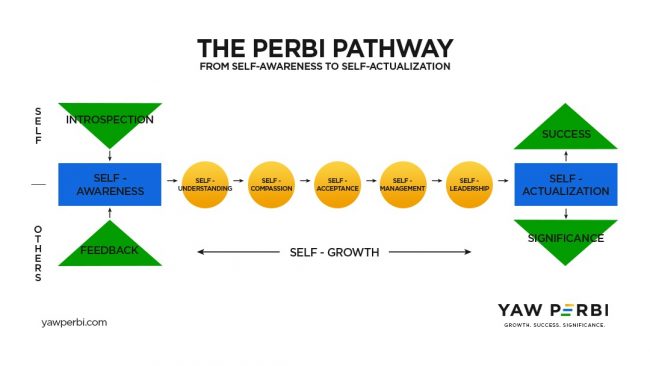
Is ‘Self-Leadership’ Really a Thing?
When the CEO of TNYOU, short for The New YOU, a leading health and wellness movement asked me to speak to a group of their Queens (members) on ‘self leadership’ it felt odd on three levels. I still showed up anyway, grateful for the invite, because Sena told me there was going to be a lot of women there so how could I turn down the invitation? I am very heterosexual!
Firstly, it felt odd because not everyone believes in the concept of ‘self leadership.’ During my graduate studies in leadership I came across leadership authorities in academia like Northouse who believe ‘self leadership’ is an oxymoron because leadership by definition per se is about other people, not one’s person.
The second reason it felt odd was that it seemed to me I was preaching to the choir. These were all women who had taken charge of their lives, self-leadership, to get their health and happiness on track. What more was there to tell them?
My third and final reason was personal: I suspect Sena Yeboah had asked me to speak on self-leadership because not only am I a leadership authority (I’m actually even undergoing doctoral studies in global leadership at the moment) but I’ve also been big on self leadership in my personal life for years and very successful in most areas (discipline of staying in medical school or to author and publish 20 books or choosing to abstain from sex before and outside of marriage or family planning for seven children etc.). The irony is that the one area I have failed miserably at in exhibiting strong self-leadership has been my personal health, particularly since the pandemic. I was very active before Covid-19 hit, sometimes doing nearly 70 flights per year and all but now both the pandemic viral curve and the curve of my abdomen had risen in tandem. What an embarrassment to stand before women who had exhibited self-leadership to look trim and prim!
I’m glad that in the spirit of authentic leadership I confessed my sin and shared my repentance story that over the previous four weeks I had now taken self-leadership regarding my health and had been working with a physical trainer/coach actually recommended to me by Sena since there’s no TNYOUMen, yet.
SO WHAT IS SELF-LEADERSHIP?
As far as I know, Charles Manz was the first to use the term ‘Self-leadership’ way back in 1983 and defined it as “a comprehensive self-influence perspective that concerns leading oneself.” The father of modern management, Peter Drucker, wades in (2010) to say that being a self-leader is to serve as chief, captain, or CEO of one’s own life. Brian Tracy talks about setting goals and taking full responsibility for that goal. The concept of self-leadership, also known as personal mastery, can be found in the writings of philosophers and poets, both Eastern and Western:
“Mastering others is strength. Mastering yourself is true power.” – Lao Tzu (born 571 BC)
“I am the master of my fate, I am the captain of my soul.” – William Ernest Henley (1849–1903)
HOW SELF-LEADERSHIP CAN BE EXPLAINED
How differently would you live your life if you saw yourself as a company and run your life that way—Me Inc.? What are some of the things your company/organizational leaders do to make it successful? A leader is a response-able PERSON who serves and influences PEOPLE to achieve a shared, noble PURPOSE. Person-People-Purpose. Because of middle P, there is a school of thought that there is nothing like self-leadership, an oxymoron, but I beg to differ: If leadership is about responsibility, serving and influencing PEOPLE, then how about starting with the FIRST PERSON, which is yourself/myself?
You should know by now that the hardest person to lead is yourself/myself! Self-leadership then is being response-able, serving and influencing oneself (one’s PERSON) to achieve a noble purpose. This purpose could be an overall life purpose or in a specific area of your life: professional, financial, health/wellness, intellectual/academic, social/relationships, spiritual. Self-leadership is to:
*Be response-able for your life. Take charge/you are in-charge. I cannot keep letting my body do whatever it wants—from my mouth to the rod in between my legs.
*Influence yourself. Influence your thinking by what you choose to read or watch, including on social media. Recently I decided to influence myself towards finishing up a book and sending it off to the publishers by promising myself my favourite Chinese food at my favourite Chinese restaurant in Accra on the day I meet that goal!
*Service yourself. Everyone needs a daily growth time; everyone, everyday. Serving yourself may sound selfish but do not confuse self-care with selfish. Even to obey the great commandant to “love your neighbor as yourself,” you can only love a neighbour to the extent that you love yourself. A classic illustration of this truism might be how on an airline the safety instruction is that in the event of a loss in cabin pressure, when the oxygen masks drop down put one on your own face first before attempting to help any others. It might seem very noble to try and save that little child next to you or the old lady already collapsing across the aisle but without taking care of you first, we might end up with two casualties instead of one: you the attempted helper and the one you were attempting to save.
TEAMS, DNA & EVERYTHING LEADERSHIP
Take a good look at every responsibility of company leadership and find an application or parallel with your own life. One of your first acts of leadership is to recruit your leadership team. Gather the right community of people around you. Even better still have TEAMS—Together Everyone Achieves Most Success. You need mentors above (coaches, teachers, counsellors, spiritual directors etc.), mates at par and mentees who look up to you to form a stable tripod. One of my friends who works with a huge European bank has actually set up a personal board of directors he meets with quarterly–and it’s working wonders for him as we meet with him quarterly (I’m on this board). At least have an accountability partner of Me Inc.
As an executive coach, I still haven’t gotten over the shock every time I meet with a top leader of a company with a compelling mission statement yet this leader hasn’t clearly spelt out and written down their own vision, mission and values! Come on! Take self-leadership now–spend some quality time (even go on a retreat) to determine your life’s vision, mission, values and some goals and strategies towards that end. That is leadership!
SELF-LEADERSHIP NOT THE SAME AS SELF-MANAGEMENT
Leadership and management aren’t one and the same. It stands to reason then that self-leadership should be distinguished from self-management (as seen in the Perbi Pathway from Self-Awareness to Self-Actualization above). While all the differences isn’t the focus of this article, suffice it to say that self-management is doing the right things for your flourishing while self-leadership is determining what the right things are in the first place. The difference between leadership and management is starkest when once needs to make a major life change. Self-leadership is able to chart and change course; self-management is able to stay the course (consistency).
Self-management would be the planning, budgeting, organizing and staffing, monitoring results, coordination… everything systems and processes to create a stable, productive environment with consistent life results. Self-leadership, on the other hand, would be building a strong personal foundation, defining DNA (vision, mission, values), mapping strategy, inspiring commitment, equipping others for the journey, leading the way… everything that creates constructive change for definitive and (often) different results.
IT IS A THING!
Self-leadership is a thing and we had better get on with it. Be response-able for you, influence and serve yourself towards personal success and societal significance. There is a company called Me Inc. [replace ‘me’ with your name, if you like]. How’s your company doing? How is your brand? For me, at the moment, it’s taking charge of my weight and wellness that will do it. What is it for you?
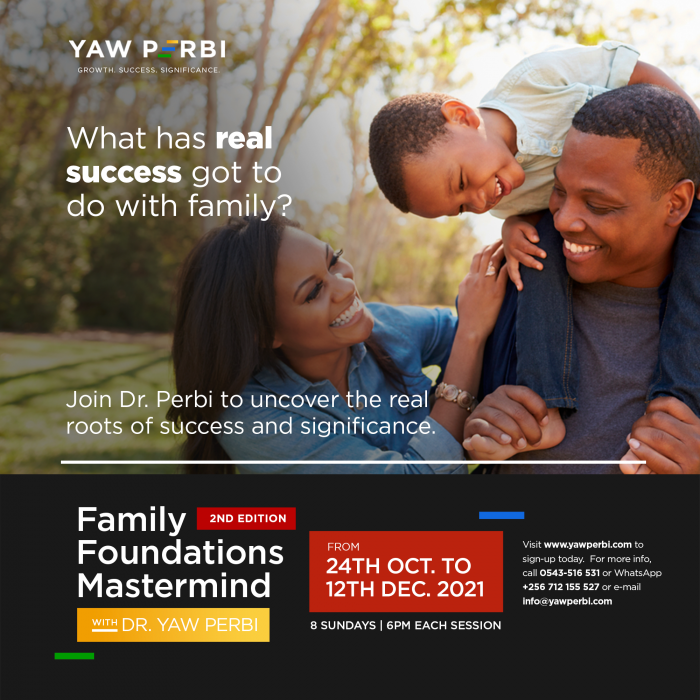
Family Foundations and Success: Will Your Anchor Hold?
We live in perilous times. Don’t you sometimes feel like the world is spinning out of control ? One of the most important things we must cherish and hold on to is family. Every single one of us has a family–no matter how (dys)functional and emotionally or geographically removed. The family is the fundamental unit of human existence. Nothing good happens on Earth if it is broken or destroyed. A society is only as good as the families that constitute it.
It is not only the concept of family that is important but also the actual living out of what family should be. Humans are described as social creatures. We make friends, live in communities, and connect with strangers based on common elements. Social media has recently emerged as a new way for people to connect with childhood peers, friends of friends, and even strangers. Nothing is more central to social life than the concept of family. Our families represent our earliest and, often, most enduring relationships.
Earlier this year, a Family Foundations Mastermind was held, with a sizeable number of couples (and some individuals) participating. All present could see that there are important things everyone should know, be, and do about the family yet no one had done! How can we expect family to be strong and stable if we ignore the fundamental roles of human existence? As a result, a popular request has been made for it to be repeated, even though we had planned this quarter to run a Financial Whizzdom Mastermind, which many were anticipating. We apologize for any inconvenience, but signing up for the upcoming Family Foundations Mastermind would never be a mistake.
With what is going on around us in this LGBTQI+ era, there is an urgent need to apply ancient wisdom and put current family systems theories to the test. The abiding questions in the 19th century hymn Priscilla Owens come to mind:
“Will your anchor hold in the storms of life, when the clouds unfold their wings of strife?When the strong tides lift, and the cables strain, will your anchor drift, or firm remain?”
We encourage everyone to participate in this mastermind as it will be both enjoyable and educational. We will explore:
Why a systematic study of family itself is important
The prime place of family (get ready for paradigm shifts!)
Ancient family wisdom (we’ll apply these)
Current family systems theories (we’ll test some)
Basic tools for emotional connection
Essential communication tools
The forgiveness exercise
Unique emotional needs and how to fulfill them
Mapping out your family genogram
Drawing up a family mission statement
Prioritization: Recognizing the place of work, family, friends, church/community, and other responsibilities that require your attention.
The idea of the integrated life over the notion of balance
And much more!
Note that this is not a masterclass but a mastermind. Inasmuch as there will be some core teaching, more central will be the concepts and tools that are put on the table for everyone to contribute their perspectives and experiences and practically learn together things together that no one could have taught us. Dr. Yaw Perbi is a guide by the side in masterminds rather than a sage on the stage, typical of a masterclass.
WHAT’S SUCCESS GOT TO DO WITH FAMILY?
Everything. As John C. Maxwell poignantly puts it, success is when the people who know you the best (family) love and respect you the most. Join this journey of growth to discover the real roots of success and significance. Family is essential. Whatever we see in society has a direct correlation with family. The family is the fundamental unit of society and humanity. We can discuss all seven sectors of life or spheres of influence, but only family actually produces human beings. Come learn how to be a better family member and how to be/do family better.
We are excited to have you. Register via this link as soon as possible. First come, first guaranteed.

4 F’s for Finding the Right Life Partner
A special shout out to Naa Anyele Perbi, my wife, economist-entrepreneur and CEO of Perbi Cubs. It’s my wife’s birthday (October 3), my wife of 15 years and counting, and as I celebrate her it seems to me that the rest of the world could benefit from 4 F’s that are critical in building a lasting marital relationship a.k.a. life partnership. Marriage is tough in and of itself and so starting with the ‘wrong’ partner is literally starting on the wrong foot. Anyele and I have been asked “how do I know for sure this is the right life partner for me?” so many times that we’ve distilled the answer down to a simple 4 F criteria. Of course, you could have 100 characteristics of the (wo)man of your dreams–why not?–but if you get these four wrong, forget the other 96!
Now, this is not just for young(er) people. Increasingly many people are getting married later in life but not just that, stuff happens. There are those who marriages end sooner than they had hoped and choose to remarry–and want to have a partner that will last this time. Here are our four: faith, future, friendship and feelings.
(1) FAITH
Faith is number one because it drives everything else. I’ll explain: people do not realize that our entire existence and behaviours our shaped, driven and undergirded by values, which in turn are determined by our beliefs (or as some call them, ‘faith assumptions’) which at the very core come from our worldview!
There is a lot of talk about values-based this and values-based that but values are only fruits of the tree; the roots are fundamental beliefs in the fertile soils of worldviews. So what kind of faith do you subscribe to, or no faith? I know people try to cross faiths, like Christian and Muslim marriages, but we really believe it is important to share a common faith because then you have a common worldview, common belief system, and common values which should lead to common behaviours to do life together that lasts, with unnecessary tensions and fight.
The apostle Paul, who incidentally never got married, waxes lyrical about this to the Christ followers in the ancient Greecian city of Corinth. He pulls no punches as he gives it to them straight up: “Do not be unequally yoked with unbelievers.” For Christians who are true disciples of Christ, the reasons and reasoning I’ve provided above which must’ve informed this command, in additional to spiritual reasons he gives in the text, may be useful to know but obedience nevertheless is the highest value in the kingdom of God. It’s also known as love for God.
(2) FUTURE
You may be two people of the same faith (so values, beliefs and worldview are in sync) but if you are going in two different directions in life, it’s not going to work. First it’s a tension and soon it’s a tear. And this has nothing to do with someone being a ‘bad person’ or the other having ‘no love’ but just because you have two different life purposes that aren’t complimentary let alone synergestic. By future we are talking about purpose compatibility. Two people may have common faith but if they are traveling in two different directions because they were made for two different destinations and destinies, the marriage partnership won’t work. I like the way a friend put it: “we are good; but we’re just not good together.”
Everyone has a specific God-given purpose that must not only be discovered but developed and fully deployed if we are to feel fulfilled. It doesn’t mean both must be doing the same sort of work or in the same field even (all they better if they are). It just means they have the passion and compassion (and perhaps even talents) to contribute to the purpose. Being fulfilled can be described as getting oxygen, and you know how any human being will instinctively fight for air if they are being choked. A life partnership will never work even if you are two people of the same faith yet moving in opposite directions, or towards different destinations and destinies.
It is critical that you discuss the future and truly understand what you are getting involved in during courtship. During courtship, the lips are for talking primarily, not kissing. You can never suck information from the mind of another no matter how much you French kiss a loved one! Decide to go into details about where you’re headed and how you envisage life in the coming years. It is not for nothing the good book inquires, “Can two people walk together unless they agree?”
(3) FRIENDSHIP
Friendship is the cornerstone of a lasting relationship, and a good friendship is intentionally formed over time. One of life’s greatest pleasures is friendship. Friendship is wonderful because it is one of the few relationships in life that fosters equality and mutuality. Almost every relationship in the world has a power differential, someone one higher than the other; not so with friendship.
If the creation account is true, then man and woman were made for each other for companionship (friendship) even before parenting for their life’s work (‘future’ above) or procreation. The other thing is that emotions come and go, but friendship endures and transcends the passage of time. Affect(ions) alone cannot always sustain a marriage. Friendship with all it entails is a truly priceless relationship. Life can become monotonous if we do not have some true friends to share it with.
It’s so cute to find an elderly couple who are truly friendships–the body language, the mannerisms. I’ve met many people, especially young ladies, who somehow seem to believe that they will never be able to marry their friends. Au contraire! Marrying your friend is the best decision one could ever make!
(4) FEELINGS
Finally, feelings are the icing on the cake of a life partnership that literally lasts a lifetime. Emotions are extremely important and should never be overlooked. They are powerful. They are called e-motions for a reason. They move us. There is a need to feel and this is a requirement for you and me to be exceptionally attracted to our partners. There must be a special thing that draws you to the individual and creates a natural flow between you two. Call it ‘chemistry,’ if you will, or that the person lights your fire. There is a need for connection and a spark between the individuals. It is key because you’ll be waking up by the side this person almost every morning for the rest of your life–you had better get some kick out of that!
There tends to be two extremes when it comes to the role of feelings in choosing a life partner. There’s the feelings don’t matter camp which gets it wrong (of course they do!) as well as the feelings first (or even feelings only) base as well. We absolutely need the feelings to make any life partnership last, but I won’t make them first or foremost. Take a look at Hollywood: more than half of the hunk-ness, über beauty, sexiness and extreme marriage proposals (on helicopters and such) result in divorces within months. Months!
Feelings are important but there aren’t everything. I remember learning 25 years ago when I was a World Vision Youth Ambassador that generally people in the West marry the one they love (have feelings for) while those in the Eastern hemisphere love the one they marry. Even arranged marriages can work if they get the first three F’s right. The fourth ‘F’ can eventually come along. In fact, many of them outlast the so-called “love marriages’ which largely focus on just the fourth ‘F.’
FINALLY…
Many people I know have a long list of life partner criteria. Every one of those lists can be divided into two: essentials and desirables; or non-negotiable and negotiable. You can add a whole list of both categories to Faith, Future, Friendship, and Feelings but these four are non-negotiables. You can have an expanded list of 100 criteria but you cannot do without these four–not if you’re serious about a life partner for a lifetime. Ascertain that these 4F’s are in place for a future with your partner that has a lifelong glow and not just a shooting star. The quality of the information you have directly impacts the quality of the decisions you make. You are in charge, therefore, make the best decision. See you at the summit!
Please share your thoughts and experiences too!
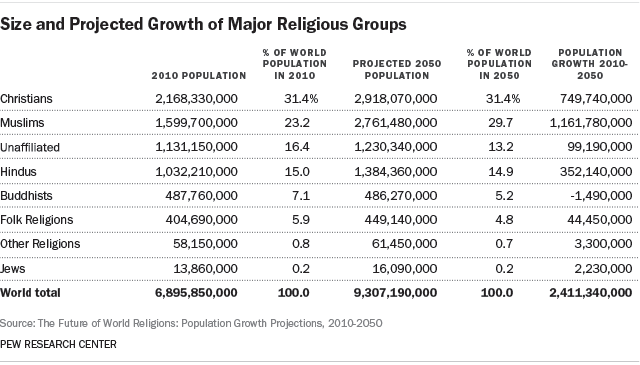
Relax. Religion isn’t going anywhere.

Although Pew’s projection of the Christian numbers is disputed by many, like the Center for the Study of Global Christianity (that it should be much higher)), the point being made in this article is still clear: the majority of the world has and will continue to be religious.
I’m very excited to begin my doctorate in global leadership this week. Having been a student of leadership for the last 25 years plus and acquired a Master’s degree in it a few years ago, I’ve felt it’s time to do the whole nine yards, not so much for the title (after all I’m already a doctor) but to go deeper and be even better-seasoned in my darling subject (or is it object?).
In going this doctorate route, I opted for a seminary environment because faith matters immensely to me, and indeed to the majority people in the world. The increased secularization of a formerly mainly ‘Christian’ Europe and certain sections of American society seems like an overwhelming flood to many only because it is a sharp deviation from the not-so-distant past when there was hardly any division between church and state; but also because the West disproportionately fills the media space. Only last week the German national broadcaster shared that a recent poll showed “most Germans find religion unimportant.” Yet the fact remains that the majority of the world has and practices a faith of sorts. In 2025, 90% of the world will be religious, my friends who run Operation World say; and by 2050, at least 87% of the world will still be religious, according to Pew Research.
The mid-twentieth-century secularization theory—that an increase in modernity means a decrease in religion— has been largely debunked by the likes of Berger (2014). According to Todd Johnson, who I just exchanged emails with, an astute associate professor of Global Christianity and Co-Director of the Center for the Study of Global Christianity at Gordon-Conwell Theological Seminary, “Despite increased modernity the world has in fact become more religious; 80.8% of the global population self-identified with a religion in 1970, rising to 88.1% in 2010 and with a projected increase to 91.5% by 2050,” higher than Pew’s projected 87% cited in the previous paragraph! Even the ‘unaffiliated’ doesn’t mean they aren’t religious; it often means they choose not to be identified with any ‘institutionalized’ religion. Just as humans have a physical, social and mental components that cannot be denied, so is there a spiritual capacity that we cannot run away from. French mathematician and philosopher Blaise Pascal put it succinctly, “There is a God-shaped vacuum in the heart of each man which cannot be satisfied by any created thing but only by God the Creator,” and in his experience and exposure, “by God the creator made know through Jesus Christ.”
By the way, I use the world ‘religion’ generally (and maybe even generously) because as an insider of the Christian faith I wouldn’t call Christianity a religion per se. Religion connotes man in search of God while in the Christian faith it is actually God in search of man. Not only that, religion tends to paint a picture of rigorous rules and rituals while true Christianity is more of a relationship with the Divine than a set of rituals or rules per se. That being said, for the purpose of this article faith, spirituality, divine relationship and religion are all being treated as ‘religion.’
FAITH AND WORK, FAITH @ WORK
Without God, and my faith in Him, I do not have a reason for being, a raison d’être. Neither do I have sustainable passion for my doings because all of it feels like, in the words of the wisest and wealthiest monarch ever, “vanity of vanity, it’s all vanity.” I have observed with grave concern the increasing divorce of faith from the work space, treating it like the plague or some highly contagious disease. Even on work-centric social media like LinkedIn, one cannot help but get the feeling that the mention of God in posts ‘spoils the atmosphere,’ which is riddled with human achievements, of brain and brawn (mainly the former), simply singing of how great we are.
But statistically, 90% and over of the people on LinkedIn are religious. There are myriads like me who know we wouldn’t be as excellent professionally but for our faith. Meanwhile, all who have an active religious affiliation yet act at work as if they have no faith are walking on the dangerous ground of inauthenticity. It is not integrous to want to, or have to, hide such an important part of one’s life as spirituality or faith in a space that easily takes up a third to half of our waking hours: work!
This week, a Muslim mate of mine from medical school, now a neurosurgeon, posted on our year group’s WhatsApp platform a screenshot of a heartfelt social media post someone had made about Dr. Aba Folson, one of our Christian colleagues who is now a cardiologist. This person who made the post, a nurse, starts by saying, “I have been blessed in my journey in the Nursing/Healthcare space to be working with amazing, highly religious health workers. One of such awesome ladies is Dr Aba Folson. She is a Cardiologist.”
She goes on to describe “her humility, assertiveness, excellence and brilliance” and how Aba has “broken protocols to help save my very critically ill patients.” The protocols she speaks of, I believe, were put in place to save patients in the first place, but there are situations where one has to do the unusual and even unconventional at great risk, which separates humans from machines and even artificial intelligence. The wisdom and courage to make such calls, Dr. Folson will say, I know for sure, comes from above. The writer of the text seems to be enamoured by the fact that Aba is “an astute Christian and sings in the choir.”
ALL WE NEED IS RESPECT
I still remember zooming down the corridor between the ER and the blood bank to fetch blood for a critically ill child. This was during my days as a medical officer at the 37 Military Hospital in Accra. We usually had junior staff who would do that but no, this young doctor run in his white coat. The child’s mother gathered the energy to attempt to run alongside me. Barely catching up and hardly catching her breath she managed to say these words, which I shall never forget, “Doctor, doctor I can tell you are a Christian.” She must’ve known that for a Christ-follower the Pauline admonition about work is clear and strong: “Whatever you do, work at it with all your heart, as working for the Lord, not for human masters.”
What is needed, indeed all that is needed, is for respectful co-existence in a pluralistic workplace, which is a microcosm of a really pluralistic world. The fight for diversity and inclusion in the workplace must not, and indeed cannot, be limited to ethnicity, age, gender, (dis)ability and such alone but faith as well. The majority of us wouldn’t be present at work with purpose and perform with passion and excellence without it, and none of us will be authentic in the workplace pretending we didn’t have it.
Faith works. Let your religion work at work—faith, love and hope at work. Your faith should make you a better professional; not worse. If your faith doesn’t make you better at work—which is all about service to humankind made in the image and likeness of God—it’s not worth following. Change it. Let’s see faith at work working, doing good works that bring God glory and bring about the good society—that’s the way it ought to be.
Post Script.
Right after I posted this blog, I came across a photo and headline on LinkedIn that said, “South African doctor: Professor “Mashudu Tshifularo” just became the first surgeon on earth to successfully perform surgery [with 3D technology] to cure deafness. He is also a pastor.” Ahem. Point nailed!

Life is lived forwards but understood backwards
Life is lived forwards but understood backwards. That sounds very much like one of those witty sayings from my bank of African proverbs but the person I read that from first was the Danish philosopher Søren Kierkegaard. In his own mother tongue “Livet skal forstaas baglaens, men leves forlaens,” translates into “Life can only be understood backwards; but it must be lived forwards.”
In a recent conversation with my brother and friend of nearly two decades, Rev. Albert Ocran, he prophetically said to me without butting an eyelid that when he looks at my entire life it can be distilled into one word: leadership, to which I replied with my head bopping like an agama lizard, “That is true, you are right!” (By the way I have given him the title, “Thought Distiller.” He’s doing a wonderful job distilling the life lessons of several leaders in society for the general public on his Springboard Road Show.) Albert is one of the few who ‘gets’ my life, probably because he is an ardent believer in something he himself calls “convergence.”
I have been accused by some of living a scattered life (“all over the place”) while others have expressed concern I might not make much of a dent in the universe (impact) because of how spread my life has been (and continues to be?). I have been a medical doctor, award-winning speaker, punching preacher, best-selling author, publisher, military officer, U.N. peacekeeper, cross-cultural pastor, serial entrepreneur from media to real estate to education, president & CEO, television presenter, financial advisor, investment consultant, founder of many things, corporate trainer, life and executive coach, inspirational teacher, lived in three countries over the last dozen years and served in 45 … So who are you, what are you? people wonder. Although I owe no one an explanation except the One who gave me life, permit me to share two pivotal paradigms, nay convictions, with you.
(1) META-PERFORMANCE–Milking Your Full Potential
First of all, there is the notion of meta-performance. Many of us never explore or exploit our full potential because we get stuck in being the best at something in comparison with others, rather than constantly exploring the question, “What am I capable of?” There is no reason to be stuck in a hospital because I was trained as a medic when I have the ability to author books as well, something the majority of my med school mates may not have the aptitude for. Shall I therefore not write because other doctors cannot? I resolved when I was but a youth, as entrenched it in my personal mission statement, to “die empty.” To die having utilized and exhausted every gift in me, but now I add, “within my God-given limits.” After all, like you I have only one life to live and have only 24 hours in each day. Besides, with a wife and seven children, family is a blessing which comes with its own limits as well.
Suffice it to say I encourage the youth in particular to spend their first 30-35 years at least, exploring and exploring and exploring until they finally hit oil. Don’t forget the parable of the talents: one was given five, another three, and a third servant, one, each according to their ability. Why should the chap with five compare himself with the person with one and underperform? As has been wisely said, the talents we have are God’s gift to us; what we do with them is our gift back to God. Meta-perform!
(2) CONVERGENCE–Connecting the Dots
But I digress, which is funny because the point I want to make next is about (a word that Albert loves): CONVERGENCE. We all must get to a point in our lives when we can look back and connect the dots, and see that all these seemingly scattered and unrelated aspects of our lives, including the lows and the pains, can all really come together to make one huge statement and result in an integrated life. The reason Kierkegaard’s words speak profoundly to me is that when I reflect on my seeming scatteredness, when I look backwards, I see that the many different-coloured strands have a common thread: leadership. That is why I doff my hat to Albert for being so spot on. I have not been called to be a medical doctor or military officer or media man or investment guru per se but a leader in every sphere I’ve been given talent and opportunity in. Is leadership a career? If it is then, then that’s mine. If it isn’t then I do not have a career.
The late Apple founder Steve Jobs put this Kierkegaard philosophy of looking backwards and Albert Ocran’s love of convergence into a very powerful statement: “Again, you can’t connect the dots looking forward; you can only connect them looking backwards. So you have to trust that the dots will somehow connect in your future. You have to trust in something—your gut, destiny, life, karma, whatever. This approach has never let me down, and it has made all the difference in my life.”
BACK TO THE FUTURE
This issue speaks to a powerful leadership practice we must all have: reflection. Reflection, really, is the rhythm of leadership. There is no understanding without reflection. Unless we lead from a place of pause, we will not be able to distill the lessons in life. Not only will we miss out on ourselves, others and even life itself but also our lives and leadership will be shallow. Take it from a guy who is almost always busy running around and has been described by my nonagenarian mentor in Britain as peripatetic. I’m learning more and more to be in solitude and silence, otherwise there is no understanding of the life lived or the thrill of the act of connecting the dots. I would wish that we all, like Aleksandr Solzhenitsyn, can say after our own backwards reflection, “later the true significance of what happened would inevitably become clear to me, and I would be numb with surprise.”
The fuller philosophy of Kierkegaard is this: “It is really true what philosophy tells us, that life must be understood backwards. But with this, one forgets the second proposition, that it must be lived forwards. A proposition which, the more it is subjected to careful thought, the more it ends up concluding precisely that life at any given moment cannot really ever be fully understood; exactly because there is no single moment where time stops completely in order for me to take position [to do this]: going backwards.” Don’t keep looking only in the rearview mirror, that’s not where you’re going. But surely do look into it momentarily from time to time for the wherewithal to live and lead forwards with meaning. Life is lived forwards but understood backwards.
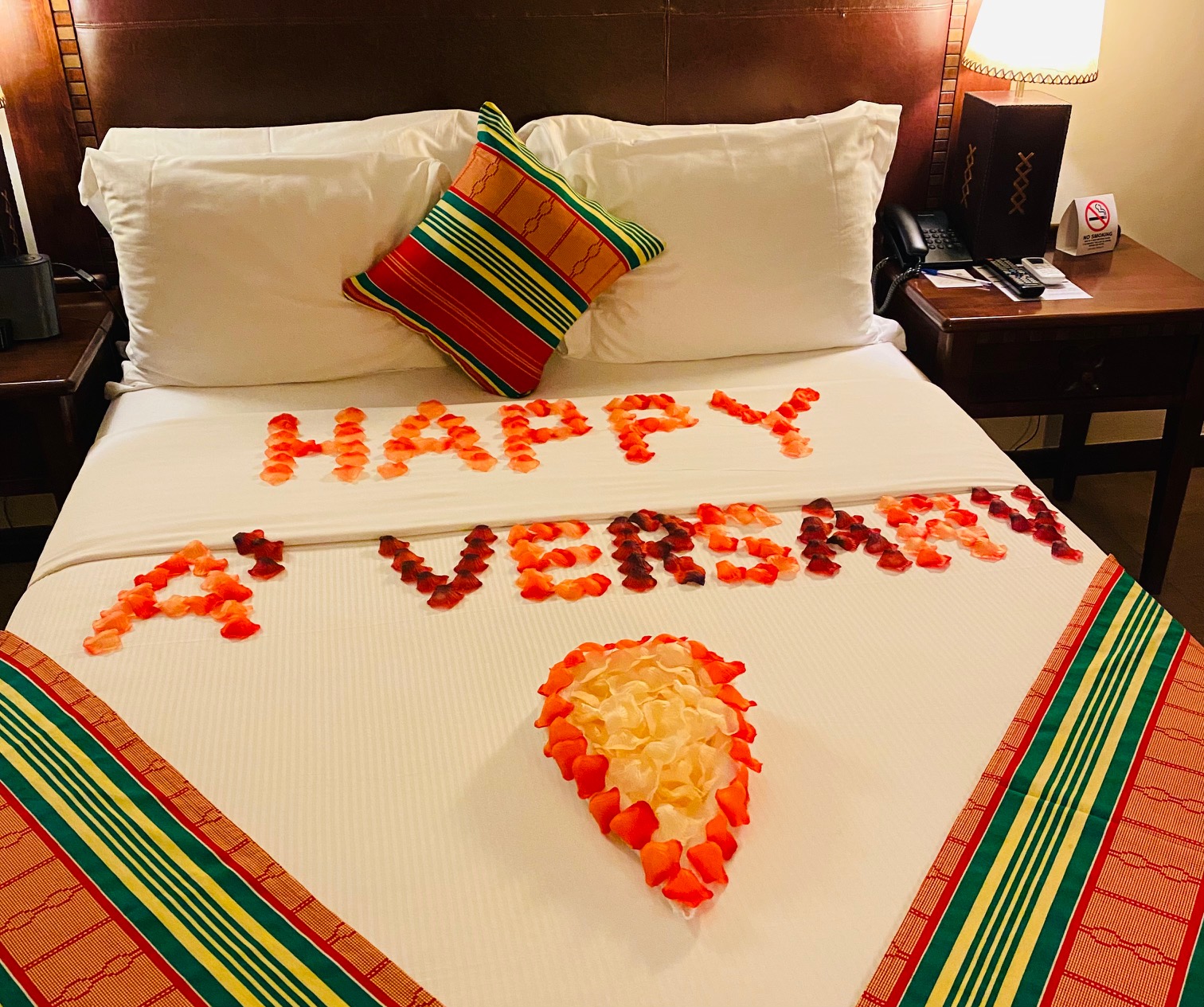
3 Secrets to Lasting 15 Years in Marriage
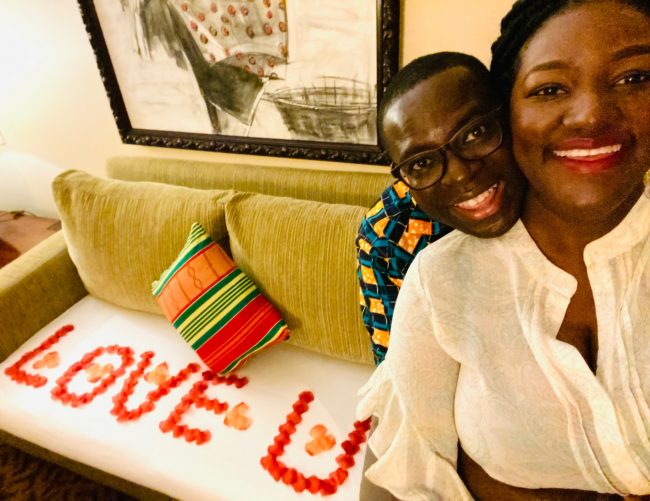
15th anniversary chilling at the African Regency Hotel, thanks to ‘friends in high places.’ Anyele was totally stunned by the decor 🙂
First of all, my wife (Anyele) and I humbly acknowledge that “15 years is nothing” compared to our parents’ (both sets) over 40 years of marriage and the 70 years some awesome couples we’ve come across have done! Wow! That’s incredible! Yet at the same time “15 years is something” considering that we’ve also come across marriages that were done, finished, caput, in months. In our short 15 years we’ve seen so many do shorter than five years, let alone 10. Fifteen? We’ve tried. We’ve even been used by God to salvage some marriages but have also heartbreakingly seen others dashed right before our eyes despite our efforts.
Secondly, I’m very wary of ‘3 secrets,’ ‘7 keys,’ ’10 ways,’ ’12 steps’ and what have you. So why am I sharing ‘3 Secrets to Lasting 15 Years in Marriage’? Well, Anyele and I just clocked 15 years on August 12, 2021. For us, the bottomline is God’s grace–and right from the start Prof. Kwaku Osam of Legon Interdenominational Church had told us during our pre-marital counselling sessions that “there is a grace for marriage” and we claimed it–in good measure. Maybe it’s true after all, but the thing about grace is that it works; and it has to be worked. Allow me to share three means of that grace for marriage that have made us largely survive (and even thrive in certain specific areas). No, I wouldn’t saddle you with ’15 lessons I have learned in 15 years of marriage’ so be grateful for just three (Lol!).
When we clocked 10 years the main thrust of our marriage lessons thus far was that marriage is the greatest character-forming school ever–even more than med. school. I’ve been to both marriage school and medical school so trust me, I know what I’m talking about! We called it the #1 Marriage Lesson That Nobody Talks About Much. That blog really seemed to resonate with the 50,000 or so it reached within weeks, thanks to social media, and was reproduced on some prominent news agency websites. It made me realize I shouldn’t play down on these key lessons, no matter how few and unwow, no matter how seemingly insignificant, no matter how humble they may be. You might scorn them; they might be life-saving for someone else.
Between year 10 and year 15, we have seen many people get married. Sadly we’ve not only seen many separations first-hand, we’ve witnessed more finalized divorces than within our first 10 years–real people, not just statistics. These three things I’m going to share have been a means of grace for us to do 15 years, especially the last five: Caring Counsellors, Close Cohorts, Cool Tools.
CARING COUNSELLORS
The most stupid thing I’ve done in marriage has been to not seek professional counselling till after year 10. We certainly have never brought any marital issue to any of our parents–it’s a no, no for many reasons that warrant a whole blog. I’ve come to realize, though, that there are certain issues that can never be well resolved between just the couple without a third wise party who is close enough (caring) yet far enough (outside the cleavage of man and wife) to be able to see clearly and share candidly. The notion, or even culture, that suggests that seeking professional counselling means one is weak or sick is toxic, it kills. Even if one were weak and sick, that’s fine too (everyone is at some point in our frail humanity and wretched world). We have seen people reach out when it was too late to salvage a totally hitherto salvageable situation (in our opinion).
Whether it’s through our conversations, their conferences or media (from books to YouTube videos), we really want to thank God for giving us the benefit of having Pete & Geri Scazzero (see picture above), Gerry & Kathy Kraemer, Carsten & Linda Pellman and indeed Shepherd’s Heart Ministry.
Apart from the listening ear, emphatic heart and vulnerable sharing of these caring counsellors, the ‘cool tools’ we’ll be sharing shortly have largely been learnt from them. An underlying paradigm that has buoyed everything else has been the Scazzeros ramming into our heads and hearts to lead in ministry and the marketplace out of the strength of our marriage, not out of the stress/strain of it–or even the death of it.
Of every single one of the divorces I’ve witnessed at close range, the couple did not have clear, regular, serious mentoring relationships. It’s worse when the man especially submits to no one on earth and is a law onto himself. Ha!
CLOSE COHORTS
You think the things you’re going through are unique to you until you are vulnerable to share with a close community of others. This must be a close community you can be vulnerable in because you are contemporaries (all in a similar stage in life), and are all truthful, honest and committed to the institution of marriage and the principles that make it work.
On WhatsApp, Anyele and I have labeled that close cohort, “inner circle.” We inspire, encourage, teach, tease, correct, rebuke and hold each other accountable. On occasion we meet in person (see picture above). God bless Nana Yaw & Beth Offei-Awuku, Victor & Esi Obeng, Amos & Evelyn Kevin Annan, and Franklin & Amma Eleblu. Franklin is my best friend, was my best man when we got married and soon after became my brother-in-law too!
COOL TOOLS
“Love your wife, Yaw.”
“OK, thank you very much. I would like to.”
“Very good.”
“But how?”
“Just do it! Obey the Bible.”
One thing I like about Westerners is their propensity to develop tools to make life a little easier. The Physics I recall says a tool is something to make work easier, any work, but especially hard work. Marriage is work, hard work. How then do we dare think we can make it without tools? There are many marriages that shouldn’t have ended if only the two involved had some of these cool tools.
This year I decided to run Family Foundations Masterminds and share some of these tools like the Community Temperature Reading, 10/10, Genograming Your Family, Family Vision & Mission Statement, Mapping out Emotional Needs & Action Points etc. Even in fighting, there is a tool to fight cleanly! The Kraemers, Scazzeros and Pellman’s, together with Shepherd’s Heart Ministries have blessed us with all these tools! People, we’ve got to invest time, attention and finances in our marriages to obtain and utilize such tools.
CONCLUSION
On this occasion of our 15th anniversary, it’s really a celebration of Ubuntu–we are because YOU are. Anyele and Yaw will have no marriage but for the community of caring counsellors and close cohorts with cool tools. We’ve not made it because we’re super smart, über skilled and have impeccable character. No. We feel overwhelmingly thankful for the cool tools and community of counsellors and cohorts–three secrets to lasting 15 years (and more) in marriage.
PS. You may find a seven-minute video of the essence of this article here.

The Little Cow
The first time I heard the story about the little cow, it was from the lips of a millionaire. Gathered in the conference room of some hotel in mid-town Montrèal, this man who had made his money from the financial services industry was urging us on to let go of our little cows, mainly JOBs (which people in his circle called “Just Over Broke”) and go chasing those dreams that will stretch us, pain us but in the end be most gratifying.
Recently, I decided to search online for the story and finally found it, author unknown. Here goes.
The Little Cow – Unkown Author
A master of Wisdom was traveling through the countryside with his apprentice when they came to a small, disheveled shack on a meagre piece of farmland. “See this poor family,” said the Master, “Go see if they will share with us their food.”
“But we have plenty,” said the apprentice.
The master said, “Do as I say.”
The obedient apprentice went to the home. The good farmer and his wife, surrounded by their seven children, came to the door. Their clothes were dirty and in tatters.
“Fair greetings,” said the apprentice, “My Master and I are sojourners and want for food. I’ve come to see if you have any to share.”
The farmer said, “We have little, but what we have we will share.” He walked away, and then returned with a small piece of cheese and a crust of bread. “I am sorry, but we don’t have much.” The apprentice did not want to take their food but did as he had been instructed. “Thank you. Your sacrifice is great.”
“Life is difficult,” the farmer said, “but we get by. And in spite of our poverty, we do have one great blessing.”
“What blessing is that?” asked the apprentice.
“We have a little cow. She provides us milk and cheese, which we eat or sell in the marketplace. It is not much but she provides enough for us to live on.”
The apprentice went back to his Master with the meagre rations and reported what he had learned about the farmer’s plight. The Master of Wisdom said, “I am pleased to hear of their generosity, but I am greatly sorrowed by their circumstance. Before we leave this place, I have one more task for you.”
“Speak, Master.”
“Return to the shack and bring back their cow.”
The apprentice did not know why, but he knew his Master to be merciful and wise, so he did as he was told. When he returned with the cow, he said to his Master, “I have done as you commanded. Now what is it that you would do with this cow?”
“See yonder cliffs? Take the cow to the highest crest and push her over.”
The apprentice was stunned. “But Master…”
“Do as I say.” The apprentice sorrowfully obeyed. When he had completed his task, the Master and his apprentice went on their way.
Over the next years, the apprentice grew in mercy and wisdom. But every time he thought back on the visit to the poor farmer’s family, he felt a pang of guilt. One day he decided to go back to the farmer and apologize for what he had done. But when he arrived at the farm, the small shack was gone.
Instead there was a large, fenced villa.
“Oh no,” he cried, “The poor family who was here was driven out by my evil deed.” Determined to learn what had become of the family, he went to the villa and pounded on its great door. A servant answered the door.
“I would like to speak to the master of the house,” the apprentice said.
“As you wish,” said the servant. A moment later a smiling, well-dressed man greeted the apprentice.
“How may I serve you?” the wealthy man asked.
“Pardon me, Sir, but could you tell me what has become of the family who once lived on this land but is no more?”
“I do not know what you speak of,” the man replied, “my family has lived on this land for three generations.”
The apprentice looked at him quizzically. “Many years ago I walked through this valley, where I met a farmer and his seven children. But they were very poor and lived in a small shack.”
“Oh,” the man said smiling, “that was my family. But my children have all grown now and have their own estates.”
The apprentice was astonished. “But you are no longer poor. What happened?”
“God works in mysterious ways,” the man said, smiling. “We had this little cow that provided us with the slimmest of necessities, enough to survive but little more. We suffered but expected no more from life. Then, one day, our little cow wandered off and fell over a cliff. We knew that we would be ruined without her, so we did everything we could to survive. Only then did we discover that we had greater power and abilities than we possibly imagined and never would have found as long as we relied on that cow. What a great blessing from Heaven to have lost our little cow.”
COW & COIN CONCLUSION
Everyone of us has a little cow that stands in the way of fulfilling our full potential. So what’s your little cow? Now imagine a little child who remains tight-fisted over a quarter, a 25-cent coin, when you are eager to give them a $100 bill you’re hiding behind you and encouraging them to ‘open up’ and ‘let go’ of the quarter to receive. They aren’t able to receive the $100 because they would rather keep the little that’s surely in hand than open their palm and risk losing the quarter, although they might very well know that what they could gain might be way better.
You probably have heard it said that often the enemy of the best is the good. What is your little coin or little cow. Let it go; kill it!

